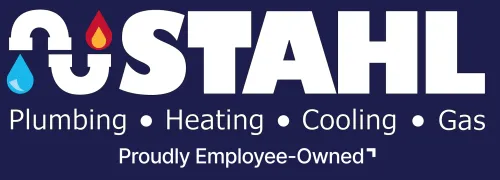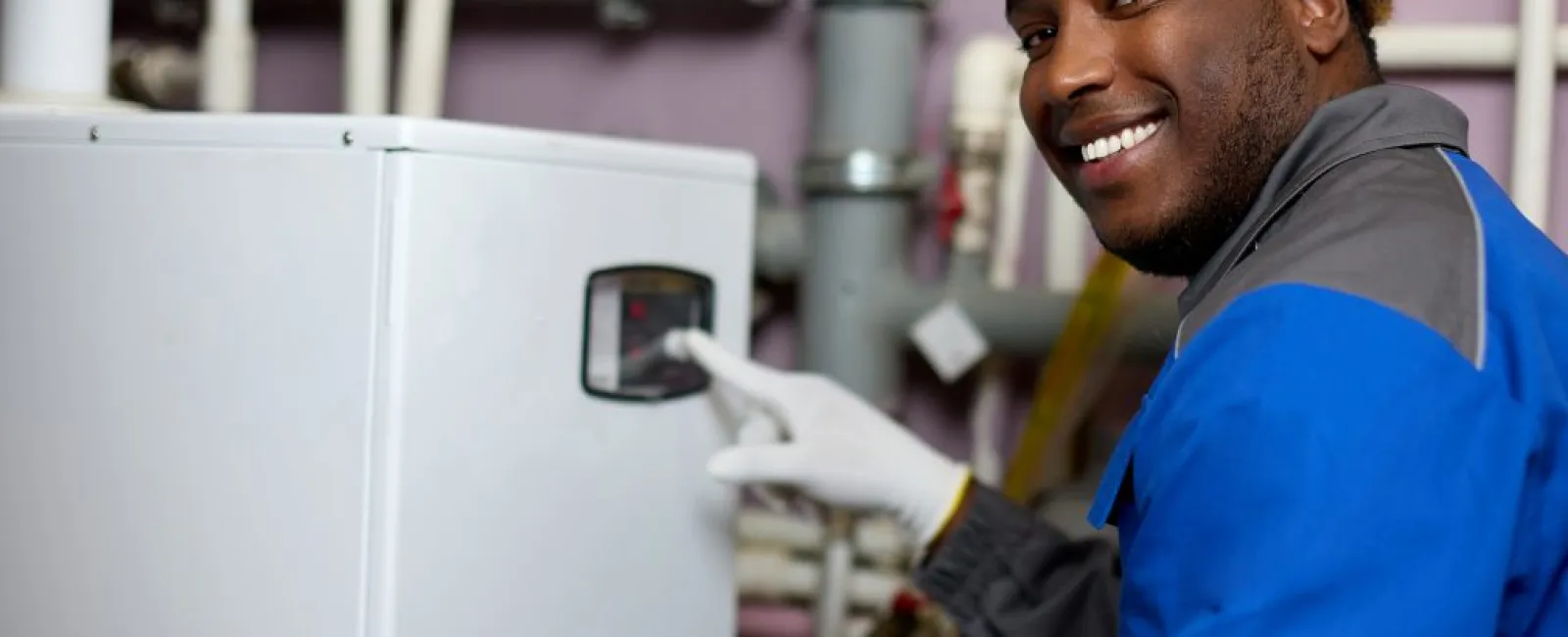Most people tend to use the terms boiler and furnace to mean the same thing; however, they are two different ways to heat your home, with distinct differences in how they work. Whatever type of unit you may have, it's important to use a qualified, fully licensed professional to help you service your system on a regular basis.
When it comes to the boiler vs. furnace argument, this guide will focus on how a boiler works and what you need to do to ensure your boiler works effectively and efficiently.
What's a boiler?
Let's clear up the terms first. A furnace runs on heat, whether it's gas, electric, or propane, that runs through the home. It then sends the hot air in vents using the home's duct system for heating.
On the other hand, water is the key element for a boiler heater. The boiler system distributes heat created from boiled water or steam through hot water pipes. The heat comes out of either baseboards or radiators. While most boilers use hot water or steam, there are boiler systems that use gas, oil, or even wood to create warmth.
What does a boiler heating system look like?
Water boilers are generally tall and cylindrical shaped. They are almost always found in basements or garages due to regulations that require them to be installed along a house wall. Installation and maintenance of your boiler can be tricky, so it's best to leave that to well-trained, professional HVAC companies.
How does a boiler work?
The science behind boiler operation is relatively simple. When you turn on your system, a gas boiler will heat the water in the tank using a flame. An electric boiler's coils or other heating element will activate to heat the water. The warm air is then driven upward through the pipes to its eventual endpoint - the baseboards or radiators. This is called the radiant heat transfer method.
What are the pros of a boiler system?
There are several important benefits to consider when thinking about how a boiler works and whether you want to install a new system or retain your home's existing system.
- Energy savings: For the most part, boilers are a better bargain because they use less fuel to heat the home.
- Less maintenance: Boilers don't use filters, so you don't have to worry about switching out filters every three months.
- Consistency: The heat produced by the boiler is more consistent and equitable throughout the home. With a furnace, some rooms may be hotter than others.
- Less noise: Boilers are usually quieter than furnaces because they don't have the sound of hot air blowing throughout the house.
- Cleaner air: Because boiler systems don't blow air, the potential for dust and allergens to spread throughout your house is reduced.
What are the cons of a boiler system?
While boilers do provide several optimal qualities, it is important to understand that there are some drawbacks to this form of heating.
- Harder installation/conversion: The process of installing a boiler is harder than a furnace; plus, switching from a boiler to a furnace can cost- and labor-prohibitive.
- No cooling: Boilers can't produce cool air, so if you live where central air is key to your comfort, they aren't the best option.
- Slow reaction time: When you change the temperature on your boiler, it can take a while for the process to work. In other words, it's not for the impatient.
- Leak dangers: When a boiler goes belly up, it can cause major leakage in your home. Most boilers are located in basements partially for this reason, but you shouldn't have anything valuable near your boiler.
How does radiator heat work?
Radiators stationed throughout a home act as the disbursal points for the boiler. The heat is pushed up to the radiators, which then emit the heat in the room. Most radiators have a knob on the side to modulate the amount of heat that comes off the unit. If you turn it fully open, the room will receive the maximum amount of heat.
Radiators also can become blocked with air, preventing the heat from escaping. You can use a special radiator key to bleed the radiator, releasing air and water to ensure it works properly when you turn it on again.
What does a boiler do regarding energy production?
A boiler's efficiency level is noted by its annual fuel utilization efficiency (AFUE) measure. The government requires newer boilers to display this number to show how the appliance converts energy from fuel to heat over the course of a year. According to the Department of Energy, those who live in cold climates should have boiler systems with a 90% to 98.5 percent AFUE.
If you have an older boiler system and want to update it through retrofitting, reach out to your local, knowledgeable HVAC provider, who will have options about the best steps to take next.

